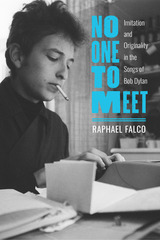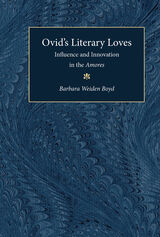3 books about Originality in literature

Hot Property
The Stakes and Claims of Literary Originality
Françoise Meltzer
University of Chicago Press, 1994
But is it original? The question, on which so much of writing stakes its claim to greatness, may be more interesting than the answer. In this provocative book, Francoise Meltzer takes a subtle and incisive look at the anxiety of origins at the heart of the literary enterprise. Using four case studies, Meltzer reveals the shaky status of originality as a founding principle of the critical establishment.
Freud, inventor of "dream work," turns a blind eye upon the dreams that were the starting point of his predecessor Descartes's famous methode, the one man's obsession with originality mirroring the other's fear of plagiarism. The Holocaust poet Paul Celan, whose sense of identity and place resided in his work, is devastated by a charge of plagiarism. Colette's husband Willy outdoes himself, and his "lazy" wife as well, with his enactment of literary seriousness. Walter Benjamin's early interpreters, notably Hannah Arendt and Theodor Adorno, insidiously undermine the originality of his project . In each of these cases, Meltzer shows how a threat to a writer's status as creator betrays the larger fraud of the originality myth itself.
Fascinating for its insights into the ways originality is both at risk and at work in Western literary culture, Hot Property will engage all those who have an interest in questions of authorship, textual soveriegnty, and the legitimacy of the critical establishment.
Freud, inventor of "dream work," turns a blind eye upon the dreams that were the starting point of his predecessor Descartes's famous methode, the one man's obsession with originality mirroring the other's fear of plagiarism. The Holocaust poet Paul Celan, whose sense of identity and place resided in his work, is devastated by a charge of plagiarism. Colette's husband Willy outdoes himself, and his "lazy" wife as well, with his enactment of literary seriousness. Walter Benjamin's early interpreters, notably Hannah Arendt and Theodor Adorno, insidiously undermine the originality of his project . In each of these cases, Meltzer shows how a threat to a writer's status as creator betrays the larger fraud of the originality myth itself.
Fascinating for its insights into the ways originality is both at risk and at work in Western literary culture, Hot Property will engage all those who have an interest in questions of authorship, textual soveriegnty, and the legitimacy of the critical establishment.
[more]

No One to Meet
Imitation and Originality in the Songs of Bob Dylan
Raphael Falco
University of Alabama Press, 2022
A groundbreaking appreciation of Dylan as a literary practitioner
WINNER OF THE ELIZABETH AGEE PRIZE IN AMERICAN LITERATURE
The literary establishment tends to regard Bob Dylan as an intriguing, if baffling, outsider. That changed overnight when Dylan was awarded the 2016 Nobel Prize in Literature, challenging us to think of him as an integral part of our national and international literary heritage. No One to Meet: Imitation and Originality in the Songs of Bob Dylan places Dylan the artist within a long tradition of literary production and offers an innovative way of understanding his unique, and often controversial, methods of composition.
In lucid prose, Raphael Falco demonstrates the similarity between what Renaissance writers called imitatio and the way Dylan borrows, digests, and transforms traditional songs. Although Dylan’s lyrical postures might suggest a post-Romantic, “avant-garde” consciousness, No One to Meet shows that Dylan’s creative process borrows from and creatively expands the methods used by classical and Renaissance authors.
Drawing on numerous examples, including Dylan’s previously unseen manuscript excerpts and archival materials, Raphael Falco illuminates how the ancient process of poetic imitation, handed down from Greco-Roman antiquity, allows us to make sense of Dylan’s musical and lyrical technique. By placing Dylan firmly in the context of an age-old poetic practice, No One to Meet deepens our appreciation of Dylan’s songs and allows us to celebrate him as what he truly is: a great writer.
WINNER OF THE ELIZABETH AGEE PRIZE IN AMERICAN LITERATURE
The literary establishment tends to regard Bob Dylan as an intriguing, if baffling, outsider. That changed overnight when Dylan was awarded the 2016 Nobel Prize in Literature, challenging us to think of him as an integral part of our national and international literary heritage. No One to Meet: Imitation and Originality in the Songs of Bob Dylan places Dylan the artist within a long tradition of literary production and offers an innovative way of understanding his unique, and often controversial, methods of composition.
In lucid prose, Raphael Falco demonstrates the similarity between what Renaissance writers called imitatio and the way Dylan borrows, digests, and transforms traditional songs. Although Dylan’s lyrical postures might suggest a post-Romantic, “avant-garde” consciousness, No One to Meet shows that Dylan’s creative process borrows from and creatively expands the methods used by classical and Renaissance authors.
Drawing on numerous examples, including Dylan’s previously unseen manuscript excerpts and archival materials, Raphael Falco illuminates how the ancient process of poetic imitation, handed down from Greco-Roman antiquity, allows us to make sense of Dylan’s musical and lyrical technique. By placing Dylan firmly in the context of an age-old poetic practice, No One to Meet deepens our appreciation of Dylan’s songs and allows us to celebrate him as what he truly is: a great writer.
[more]

Ovid's Literary Loves
Influence and Innovation in the Amores
Barbara Weiden Boyd
University of Michigan Press, 1997
Ovid's poetry has in recent years enjoyed a remarkable renaissance: in particular, there has been a surge of interest in the Heroides, the Fasti, and his exile poetry. Ovid's Literary Loves, by Barbara Weiden Boyd, reopens the Amores for the modern reader. The volume establishes a context for the recent reception of the Amores, and proposes an alternative approach to the collection by discussing recent trends in the discussion of imitation in Roman poetry. A premise basic to most Ovidian studies has been that the Amores are not only imitative, but parodic, both of the elegiac genre writ large and of Propertius in particular. In contrast, Boyd emphasizes the many nonelegiac, non-Propertian features of the collection. Ovid's irony and its consequences are also discussed with special attention to the narrative structure of the three books.
Boyd's thoughtful approach to imitation in Latin poetry brings into prominence the formative role played by Virgil in shaping Ovid's "poetic memory," even in the Amores. The detailed examination of Ovidian extended similes shows how the poet exploits the literary past precisely in order to free himself from generic restraint and to expand the narrow horizons of elegy. Boyd argues that this paradox is the essence of Ovidian poetics.
Ovid's Literary Loves is an imaginative approach to imitation in Latin poetry and makes a significant contribution to current discussions of the subject. This is one of the first contemporary scholarly monographs on the Amores, and it will find a large and welcoming audience of Latinists at all levels of study.
Barbara Weiden Boyd is Associate Professor of Classics, Bowdoin College, Brunswick, Maine.
Boyd's thoughtful approach to imitation in Latin poetry brings into prominence the formative role played by Virgil in shaping Ovid's "poetic memory," even in the Amores. The detailed examination of Ovidian extended similes shows how the poet exploits the literary past precisely in order to free himself from generic restraint and to expand the narrow horizons of elegy. Boyd argues that this paradox is the essence of Ovidian poetics.
Ovid's Literary Loves is an imaginative approach to imitation in Latin poetry and makes a significant contribution to current discussions of the subject. This is one of the first contemporary scholarly monographs on the Amores, and it will find a large and welcoming audience of Latinists at all levels of study.
Barbara Weiden Boyd is Associate Professor of Classics, Bowdoin College, Brunswick, Maine.
[more]
READERS
Browse our collection.
PUBLISHERS
See BiblioVault's publisher services.
STUDENT SERVICES
Files for college accessibility offices.
UChicago Accessibility Resources
home | accessibility | search | about | contact us
BiblioVault ® 2001 - 2024
The University of Chicago Press









